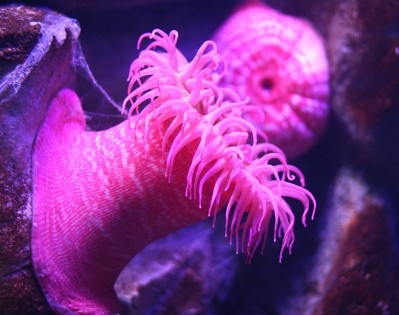Sun cream to protect against jellyfish stings
take part in studies of an anti-jellyfish sting agent incorporated
into a sunscreen - a product which is likely to be in high demand
as jellyfish populations are soaring.
The University of Oslo appears to be having difficulties recruiting for volunteers for the study, where a jellyfish sting is an inevitable part of the test. The study, sponsored by AC Suncare, a Norwegian sun care company and manufacturer of the product, will test the efficacy of an anti-jellyfish sting sunscreen developed by Nidaria an Israeli technology company. Scientists estimate that there are more than 2,000 species of jellyfish, ranging from those whose sting is not harmful or even perceptible to humans to killers such as the Portuguese Man of War. However, it seems that jellyfish populations are rising rapidly, as reported on our sister site foodnavigator.com. This is due to warmer oceans, protective structures off the coast and indiscriminate fishing practices that lead to favourable conditions for the polyps. Furthermore, the New Scientist has recently reported unusual concentrations of the mauve stinger jellyfish Pelagia noctiluca around Spain's Balearic Islands, and elsewhere in the Mediterranean, it is feared they may turn up on tourist beaches in the height of summer. In this increasingly jellyfish friendly environment, demand for this type of product is likely to increase as worried holidaymakers aim to protect themselves from two holiday dangers. The sunscreen's anti-jellyfish effect is inspired by the natural protective mechanisms of the clown fish against the poisonous stinging sea anemone; mechanisms that allow for the symbiotic relationship made famous by Disney's Finding Nemo. The clown fish's defence system relies on a protective layer of mucous that stops the anemone recognising the fish as prey. The sunscreen is a man made replication of this protective mucous, helping to protect humans from many types of jellyfish sting as well as fire coral, sea lice and other stingers. A jellyfish tentacle contains large numbers of stinging cells, containing a highly folded needle which unfolds and penetrates the skin as the jellyfish stings. A square millimetre of human skin will be penetrated by over 2000 needles during a jellyfish sting, leading to the characteristic pain and inflammation. The stinging mechanism relies on an increase in pressure within the capsule, causing the capsule to open and shooting out the needle with the poison; one of the fastest mechanical events in cellular biology. The sunscreen provides a multi pronged defence system against the stings: firstly it has a waterproof slippery texture that makes it difficult for the tentacles to attach to the skin, secondly compounds in the cream mimic the self recognition system of the jellyfish so that is unable to detect the human as prey, and thirdly the cream contains positively charged ions that reduce the osmotic pressure that leads to the stinging The sun care range is being marketed as perfect for divers, as well as tourists heading to locations where jellyfish stings are common.


















